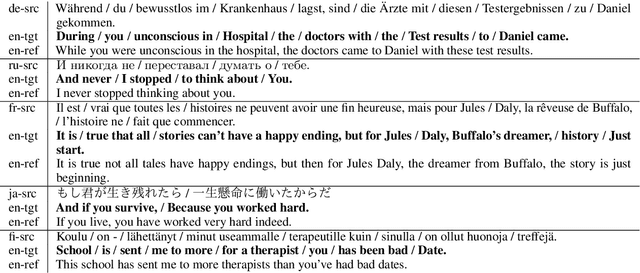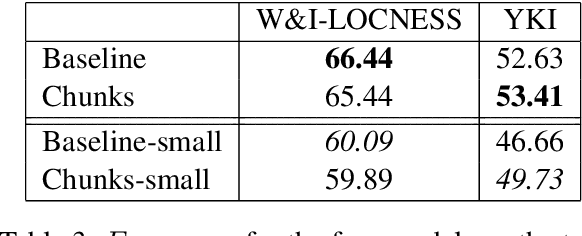Eetu Sjöblom
Grammatical Error Generation Based on Translated Fragments
Apr 20, 2021


Abstract:We perform neural machine translation of sentence fragments in order to create large amounts of training data for English grammatical error correction. Our method aims at simulating mistakes made by second language learners, and produces a wider range of non-native style language in comparison to state-of-the-art synthetic data creation methods. In addition to purely grammatical errors, our approach generates other types of errors, such as lexical errors. We perform grammatical error correction experiments using neural sequence-to-sequence models, and carry out quantitative and qualitative evaluation. A model trained on data created using our proposed method is shown to outperform a baseline model on test data with a high proportion of errors.
Paraphrase Detection on Noisy Subtitles in Six Languages
Sep 21, 2018



Abstract:We perform automatic paraphrase detection on subtitle data from the Opusparcus corpus comprising six European languages: German, English, Finnish, French, Russian, and Swedish. We train two types of supervised sentence embedding models: a word-averaging (WA) model and a gated recurrent averaging network (GRAN) model. We find out that GRAN outperforms WA and is more robust to noisy training data. Better results are obtained with more and noisier data than less and cleaner data. Additionally, we experiment on other datasets, without reaching the same level of performance, because of domain mismatch between training and test data.
 Add to Chrome
Add to Chrome Add to Firefox
Add to Firefox Add to Edge
Add to Edge